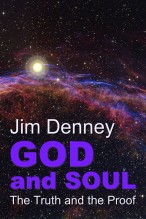Here is an incredible two-minute video clip from the end of the documentary Collision, featuring Christopher Hitchens (author of God is Not Great) and Reformed pastor Douglas James Wilson (Christ Church, Moscow, Idaho). The video was recorded during their promotional tour for the book Is Christianity Good for the World?, based on their series of debates.
In my previous posts about Christopher Hitchens (“Lament for an Atheist Part I” and “Part II”), I made note of the strange fact that Hitchens, in God is Not Great, devotes an entire chapter to “Arguments from Design,” yet he doesn’t make even the slightest reference to the “fine-tuning” or “anthropic” evidence.
(For a thorough presentation of that evidence, see my book God and Soul: The Truthand the Proof; for a brief introduction, see my blog piece “Is Our Universe ‘the Ultimate Artifact’?”)
Ever since reading God is Not Great, I’ve wondered if Hitchens was completely unaware of the fine-tuning evidence or if he simply avoided the subject because it posed an insoluble problem for him. Here’s what I wrote:
Though Chapter 6 of God is Not Great is entitled “Arguments from Design,” he doesn’t devote even one word to the cosmological case for God. The evidence is hardly new or difficult to research. This concept has been around since 1973, when physicist Brandon Carter introduced an idea he called “the anthropic principle.” It has been explored extensively by such writers as Paul Davies, John Barrow, Frank Tipler, John Gribbin, Martin Rees, and others. I devoted an extensive section of my 2001 book Answers to Satisfy the Soul to the subject.
Why, then, does Hitchens completely ignore the subject in God is Not Great? As I read Hitchens and his fellow “New Atheists,” I’m struck by the fact that they don’t seem merely unpersuaded by the evidence. They seem to either misunderstand the evidence—or worse, they seem altogether ignorant of it. Writing a chapter called “Arguments from Design” without even one mention of the cosmological evidence is like writing a book on the history of Apple Computers without any mention of Steve Jobs. It’s downright bizarre.
Well, now we know that Hitchens did know about the fine-tuning argument—and what he says about fine-tuning in this video stunned me. It will shock anyone who truly groks the implications of Hitchens’ statement. Click “play” and hear it for yourself:
Here’s a transcript of the first part of the conversation between Hitchens and Wilson:
Hitchens: At some point, certainly, we are all asked which is the best argument you come up against from the other side. I think every one of us picks the fine-tuning one as the most intriguing.
Wilson: The Goldilocks idea. Yeah, okay.
Hitchens: Yeah. The fine-tuning, that one degree, well, one degree, one hair different of nothing—that even though it doesn’t prove design, doesn’t prove a Designer, [the fine-tuning] could have all happened without [God]— You have to spend time thinking about it, working on it. It’s not a trivial [argument]. We all say that.
(By the way, when Hitchens says, “We all say that,” he refers to himself, to Richard Dawkins, and to the rest of the New Atheists. And Wilson’s reference to “the Goldilocks idea” refers to the fact that our fine-tuned universe is “just right” for life.)
In this brief clip, Christopher Hitchens has given us all—theists, skeptics, agnostics, atheists, and anti-theists—a lot to think about. And the biggest question on my mind is this: If Hitchens and the other New Atheists know that fine-tuning is not a trivial argument, that you have to spend time thinking about it, why do they omit it or misrepresent it in their books? What are they afraid of?
____________________________
Addendum — Sunday, October 14, 2012 — “NO PROOF!”
Yesterday on Twitter, I sent out some tweets regarding the anthropic (fine-tuned universe) case for God. An atheist tweeted back two words in all caps: “NO PROOF!” I looked up the atheist tweeter’s profile and found that his profile consisted of a single quotation by Christopher Hitchens: “What can be asserted without evidence can also be dismissed without evidence” (from page 150 of God is Not Great).
Perfect! I love that quote, because (a) it cuts both ways, and applies with equal force to atheist assertions, and (b) because the anthropic case for the theistic worldview consists of a mountain of irrefutable evidence. I also love that quote because (c) Hitchens HID that mountain of evidence from his readers when he wrote God is Not Great.
So I replied to my atheist friend (in a multi-part tweet):
Hi. Your profile quotes Hitchens, “What can be asserted without evidence can also be dismissed without evidence.” But Hitchens acknowledged that there IS evidence for the existence of God, that the evidence is “not trivial” and cannot be dismissed. See the Hitchens video at: [LINK].
This morning, I checked Twitter to see if my atheist friend had replied. In a way, he had. He had BLOCKED me.
Clearly, some atheists can’t handle the truth.






